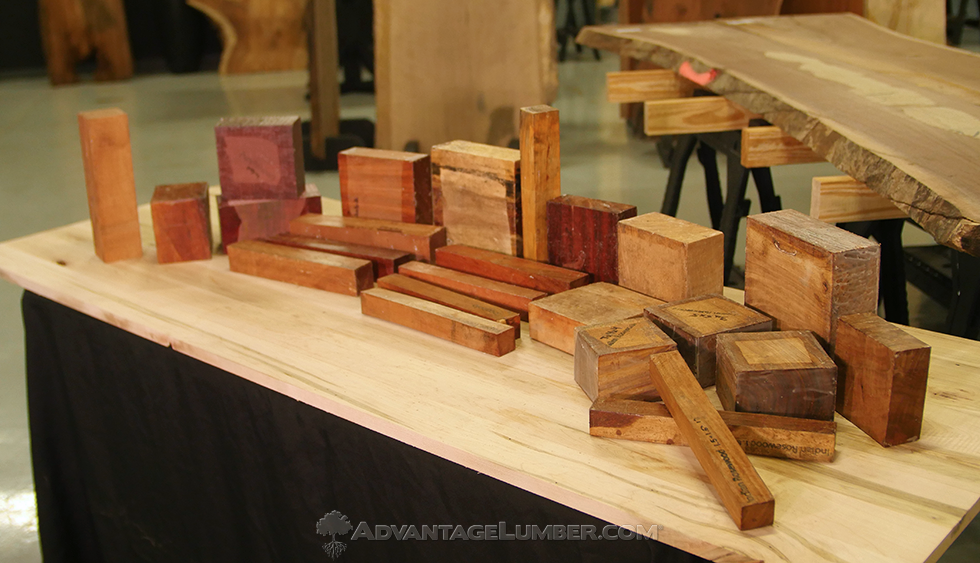- Scientific Name
- Platymiscium spp.
- Common Name(s)
- Macacauba, Macawood, Hormigo, Orange Agate
- Distribution
- Central and South America
- Average Dried Weight
- 59 lbs/ft3 (950 kg/m3)
- Specific Gravity
- Basic: .81, 12% MC: .95
- Janka Hardness
- 2,700 lbf (12,030 N)
- Modulus of Rupture
- 21,540 lbf/in2 (148.6 MPa)
- Elastic Modulus
- 2,837,000 lbf/in2 (19.56 GPa)
- Crushing Strength
- 11,700 lbf/in2 (80.7 MPa)
- Shrinkage
- Radial: 2.8%, Tangential: 4.2%, Volumetric: 7.2%, T/R Ratio: 1.5
- Appearance
- Heartwood color can be highly variable, ranging from a bright red to a darker reddish or purplish brown, frequently with darker stripes. When the wood is referred to as “Hormigo,” various suffixes are used to describe the heartwood color: “Hormigo Negro” for darker pieces or “Hormigo Rojo” for orangish red pieces. Clearly demarcated sapwood is yellow to white.
- Texture
- Grain is straight to interlocked, with a medium to fine texture. High natural luster. Endgrain: Diffuse-porous; large pores in no specific arrangement; solitary and radial multiples of 2-3; heartwood mineral/gum deposits (yellow) occasionally present; growth rings indistinct; narrow rays not visible without lens, fairly close to close spacing; parenchyma lozenge, confluent, and banded (not marginal).
- Rot Resistance
- Heartwood is rated as durable to very durable regarding decay resistance, with good resistance to insect attacks as well.
- Workability
- Overall, good working characteristics for both hand and machine tools, though areas of interlocked grain should be approached with care to avoid tearout. Able to take a very high natural polish. Turns and glues well.
- Odor
- No characteristic odor.
- Allergies/Toxicity
- Besides the standard health risks associated with any type of wood dust, no further health reactions have been associated with Macacauba.
- Pricing/Availability
- Commonly imported under a variety of common names, and in a number of forms (lumber, turning blanks, flooring, etc.). Expect prices to be moderate for an imported exotic hardwood.
- Sustainability
- Macacauba is not listed in the CITES Appendices or on the IUCN Red List of Threatened Species, although a single Costa Rican species, Platymiscium pleiostachyum, is listed as endangered. The species is estimated to have less than 2,500 mature individuals still living, and the population is estimated to continue to decline at least 20% over the next two generations. This species has been exploited for lumber in the past, but there’s no indication that it’s been exported internationally.
- Common Uses
- Furniture, cabinetry, veneer, musical instruments, turned objects, and small specialty wood items.
- Comments
- This wood goes by a number of common names, with none of them having a clear predominance. Macacauba or Macawood is usually used when referring to the lumber, while Hormigo is more commonly used for specialty applications such as turning or musical instruments. Orange Agate has also been used as a trade name to help sell the wood. The ambiguous name Granadillo is also sometimes applied to this wood (along with dozens of other species).


